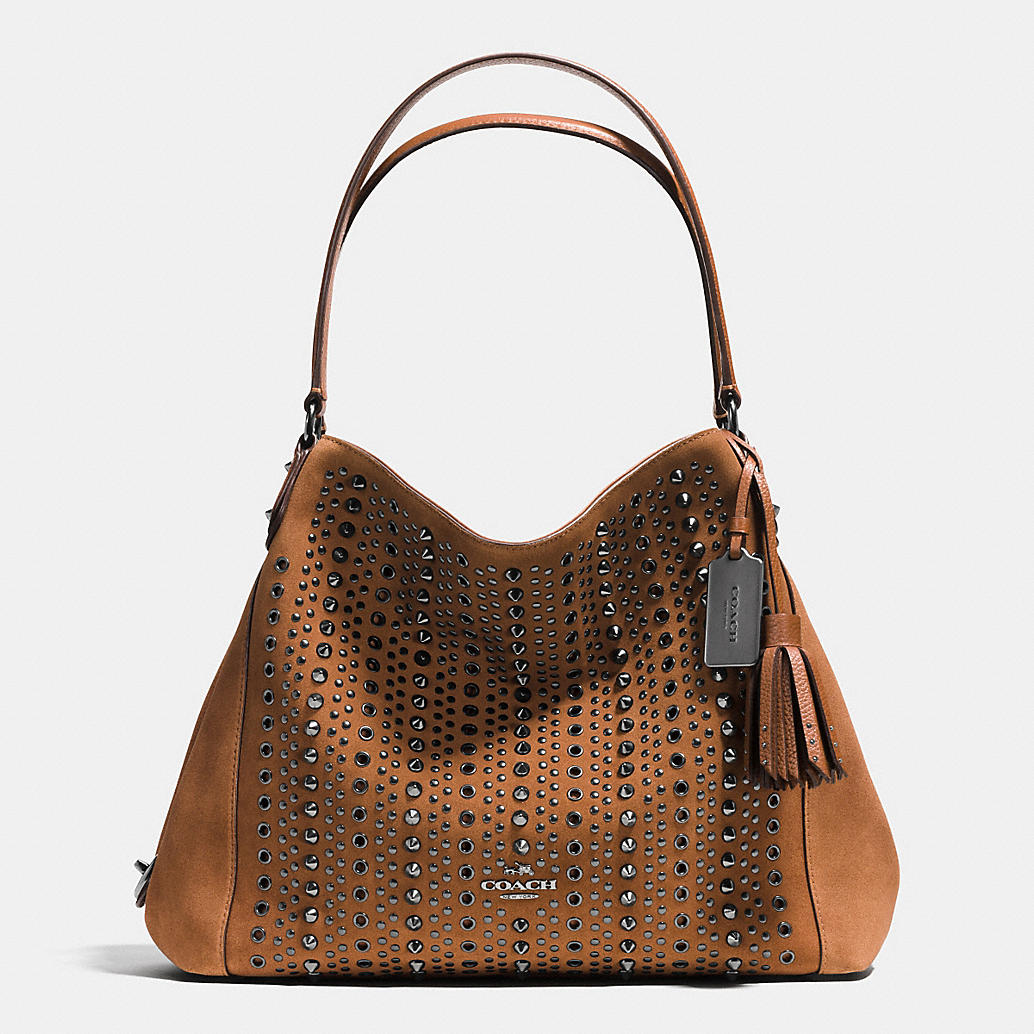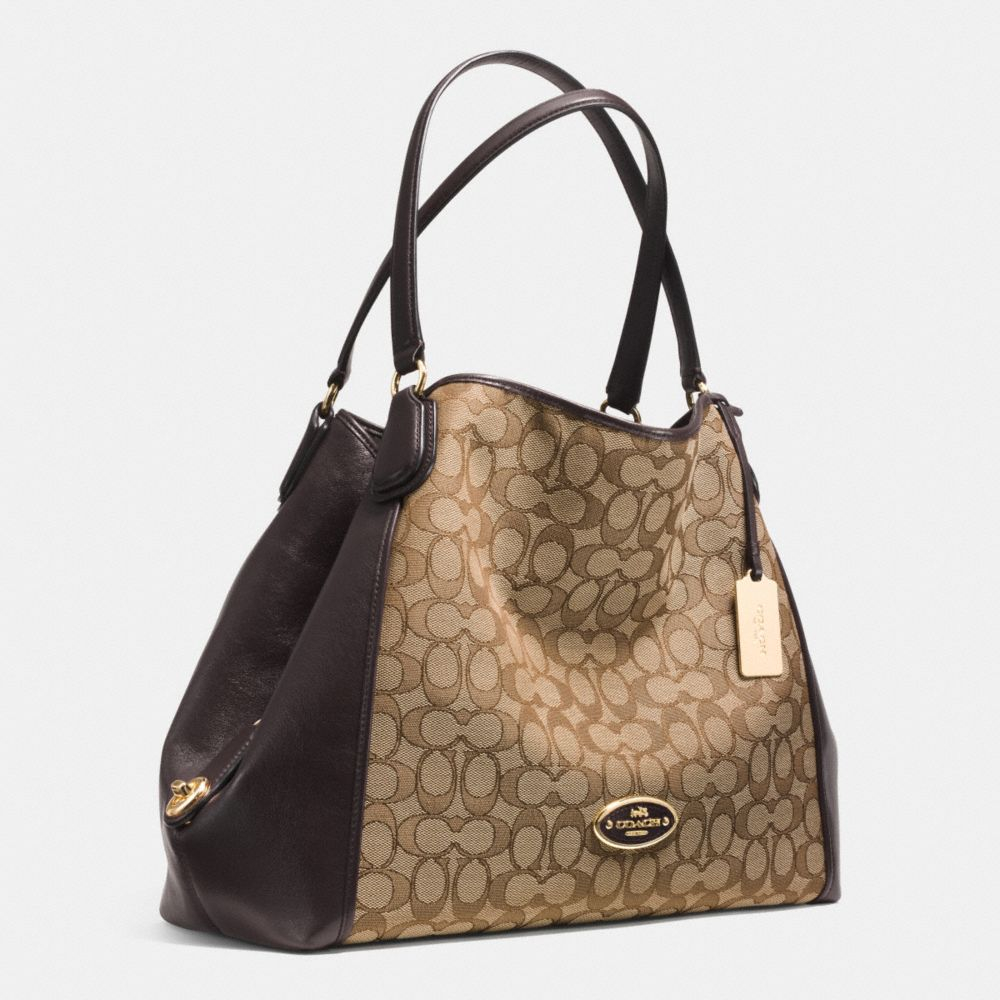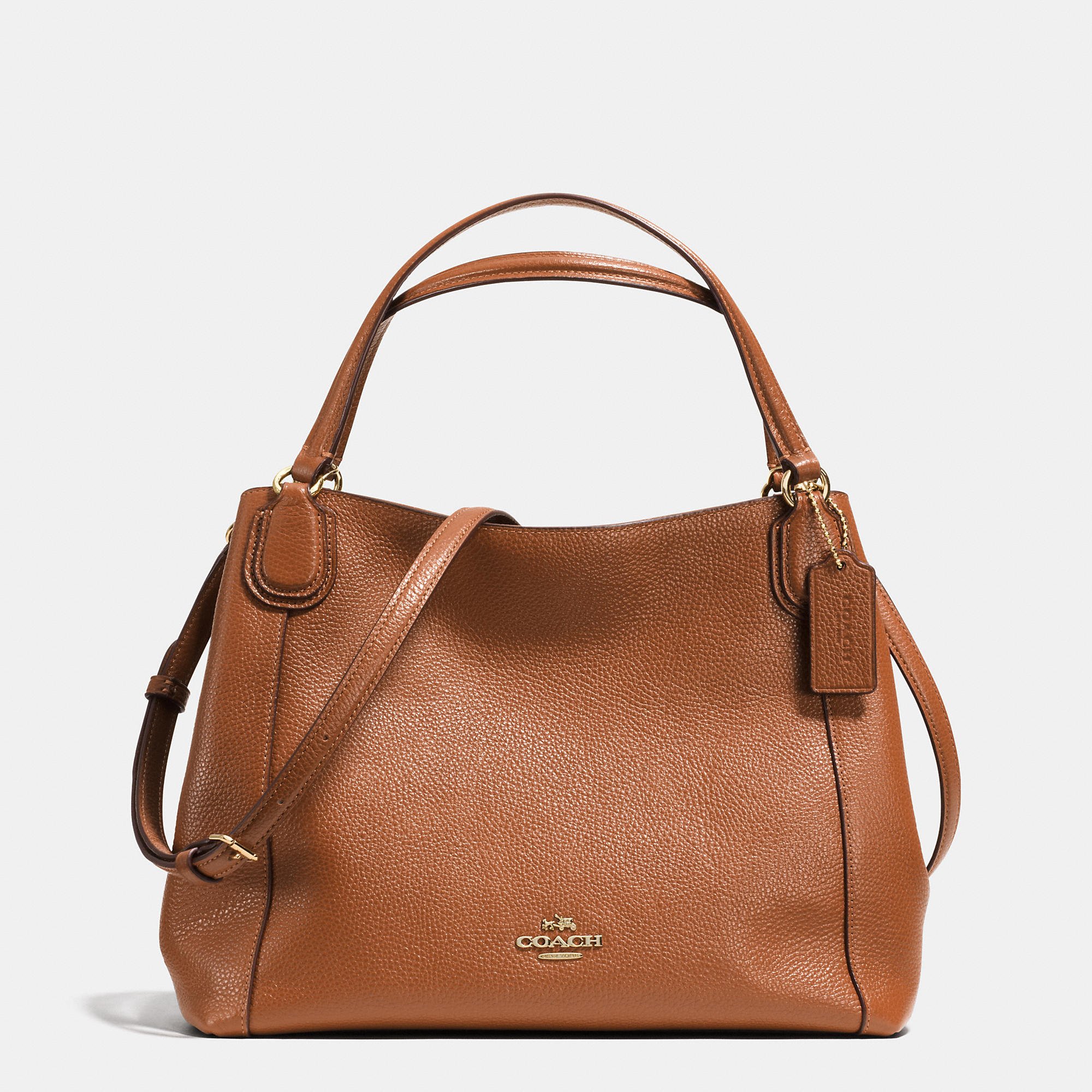Are you wondering if your stylish Coach wallet offers a shield against digital snoops? It's a very common question, you know, as more of our lives become connected. Protecting personal financial details has become a big worry for many folks these days.
You see, with the rise of contactless payments and digital cards, there's a quiet concern about how safe our sensitive information truly is. People are, quite understandably, curious about whether their everyday accessories, like a favorite wallet, can actually keep their data private. It's a bit like wanting to know if your front door has a good lock, isn't it?
This discussion will look at what RFID protection means, why it matters for your peace of mind, and whether Coach wallets typically come with this kind of security. We will also talk about how you can check your own wallet and what steps you can take to keep your financial information safe, so, stick around.
Table of Contents
- Understanding RFID: What It Is and Why It Matters
- The Coach Brand and Its Appeal
- Do Coach Wallets Offer RFID Blocking?
- Ways to Protect Your Cards and Information
- Frequently Asked Questions About RFID Wallets
Understanding RFID: What It Is and Why It Matters
What is RFID, Anyway?
RFID, which stands for Radio-Frequency Identification, is a technology that uses radio waves to send information. It's basically a tiny chip that can be read wirelessly, you know, from a short distance. You'll find these chips in many things we use daily, like credit cards, passports, and even some public transport cards. They make things very convenient, letting you tap and go without swiping or signing.
So, when you use a contactless payment, that's RFID at work. It's a quick way to handle transactions, which is pretty handy. This technology has really changed how we pay for things, making it quicker and simpler in a lot of situations, actually.
How Digital Skimming Might Happen
The concern with RFID comes from the possibility of something called "digital skimming." This means someone with a special device could, in theory, read the information from your cards without you even knowing. They wouldn't need to touch your wallet or even get very close, just a little distance away. This idea makes many people feel a bit uneasy, and that's understandable.
While reports of this happening are not widely common, the potential is there, and it's something people think about. It’s a bit like worrying about someone listening in on a private conversation, but with your financial data, so, it's a valid worry.
The Importance of Guarding Your Data
Keeping your personal and financial information safe is, without a doubt, a big deal these days. Identity theft and financial fraud can cause a lot of problems, from lost money to damaged credit scores. So, people are always looking for ways to add extra layers of protection to their daily lives. That's why questions like "are Coach wallets RFID protected" come up so often, you know.
Having a good handle on how your data is stored and how it might be accessed is just smart thinking. It gives you a bit more peace of mind when you're out and about. We all want to feel secure with our personal items, and our wallets are a very personal item.
The Coach Brand and Its Appeal
Coach Materials and Design Choices
Coach has long been a popular name in the world of fashion accessories, known for its bags and wallets. When you look at their items, you'll notice a lot of variety in the materials they use. For instance, some pieces feature a cross-grain leather, which is quite durable, while other Coach items are made with very soft leather materials, which many find appealing and worth getting, actually.
The brand has, over the years, changed its approach to design. Some time ago, Coach and another popular brand, MK, were seen as pretty equal in the market. But since Coach brought in new designers, their styles have evolved, and they now offer a wide array of options that appeal to many different tastes. This constant refreshing of their look is a big part of their enduring appeal, you know.
Coach in the World of Accessories
When friends get together and talk about their bags, Coach often comes up. Some might compare it to higher-end brands, but Coach has really carved out its own space as a well-regarded option in what people call the "light luxury" category. It's seen as a brand that offers good quality and style without being overly expensive, which is a very good balance for many shoppers.
People choose Coach for many reasons, from their classic designs to their more modern offerings. The brand has a history of creating items that are both fashionable and functional, which makes them a go-to for many. It's a brand that has a loyal following, and that's for a good reason, apparently.
Do Coach Wallets Offer RFID Blocking?
Checking Your Specific Coach Wallet
Now, getting to the heart of the matter: are Coach wallets RFID protected? This is where it gets a little less straightforward. Coach, as a brand, does not broadly advertise RFID protection as a standard feature across all its wallet lines. This means you can't just assume every Coach wallet you see will have this built-in security. It's a bit like buying a car; some models have certain features, and others might not, you know.
To find out if a particular Coach wallet has RFID blocking, the best thing to do is check the product description very carefully. If you're buying online, look for phrases like "RFID protected," "RFID blocking," or "RFID safe" in the item's details. If you're shopping in a store, you can always ask a sales associate directly. They should be able to tell you if that specific wallet offers the protection you're looking for, or if it's just a regular wallet, more or less.
It's worth noting that some brands might include RFID protection in newer models or specific collections, so what was true for an older wallet might not be true for a brand new one. Keeping up with the latest product details is always a good idea when security is a concern, so, stay informed.
What If Your Wallet Doesn't Have It?
If you find that your Coach wallet, or any wallet for that matter, doesn't come with built-in RFID protection, don't worry too much. You have several easy ways to add that layer of security yourself. It's not a lost cause by any means. You can get external RFID blocking sleeves for your individual cards, which are quite thin and slip right into your existing card slots. These sleeves act as a barrier, stopping unwanted scans, you know.
Another option is to buy a separate RFID blocking card that you can place in your wallet alongside your other cards. These cards create a protective field around your wallet's contents. It's a very simple solution that can give you peace of mind without needing to buy a whole new wallet. These additions are pretty affordable and easy to find, too it's almost.
Ways to Protect Your Cards and Information
Simple Steps for Better Card Security
Beyond special wallets or sleeves, there are some everyday habits that can help keep your card information safe. One simple tip is to only carry the cards you absolutely need. The fewer cards you have with you, the less data is potentially at risk, that is that. Also, keep an eye on your bank and credit card statements regularly. Looking for any strange activity can help you spot problems early, which is pretty important.
When you're out using ATMs or card readers, be aware of your surroundings. Cover the keypad when you enter your PIN, and check the card slot for anything that looks out of place. These small actions can make a big difference in preventing fraud, and they are good habits to get into, you know, for general security.
What to Look for in a Secure Wallet
If you're in the market for a new wallet and RFID protection is high on your list, there are a few things to keep in mind. Look for wallets that clearly state they have RFID blocking technology. Many brands now offer this as a standard feature in their newer designs. You might find them made from materials that naturally block radio waves, or they might have a special lining built in, apparently.
Consider the size and style that works best for you. RFID wallets come in all shapes and sizes, from slim cardholders to larger bi-folds. Choose one that fits your daily needs and still feels comfortable. The goal is to find a wallet that offers both the security you want and the practicality you need, so, take your time picking one out. Learn more about wallet security on our site, and link to this page for more insights.
For more general information on personal data safety, you might want to check out resources from consumer protection agencies, like the Federal Trade Commission's advice on identity theft prevention. They have lots of good information, actually.
Frequently Asked Questions About RFID Wallets
Q: What is the best material for RFID blocking?
A: The most effective materials for RFID blocking are usually metals, like aluminum foil or specific metal alloys. These materials create a sort of cage that stops radio waves from getting through. Many RFID blocking wallets have a layer of these materials sewn into their lining. So, when you see a wallet advertised as RFID protected, it likely has one of these metal barriers inside, or something similar, you know.
Q: Do all new credit cards have RFID?
A: Most new credit and debit cards issued today do come with RFID technology, allowing for contactless payments. You can usually spot them by a small symbol on the card that looks like a Wi-Fi signal turned on its side. However, not every single card will have it, especially older ones that haven't been replaced yet. It's becoming very common, though, so, many people have them now.
Q: Can RFID blocking wallets interfere with my phone signal?
A: Generally speaking, an RFID blocking wallet is not designed to interfere with your phone's signal. The technology used for RFID blocking is meant to block very specific radio frequencies used by cards, not the broader frequencies your phone uses for calls or data. So, you shouldn't have to worry about your wallet causing issues with your phone's performance. It's a pretty separate thing, you know.



